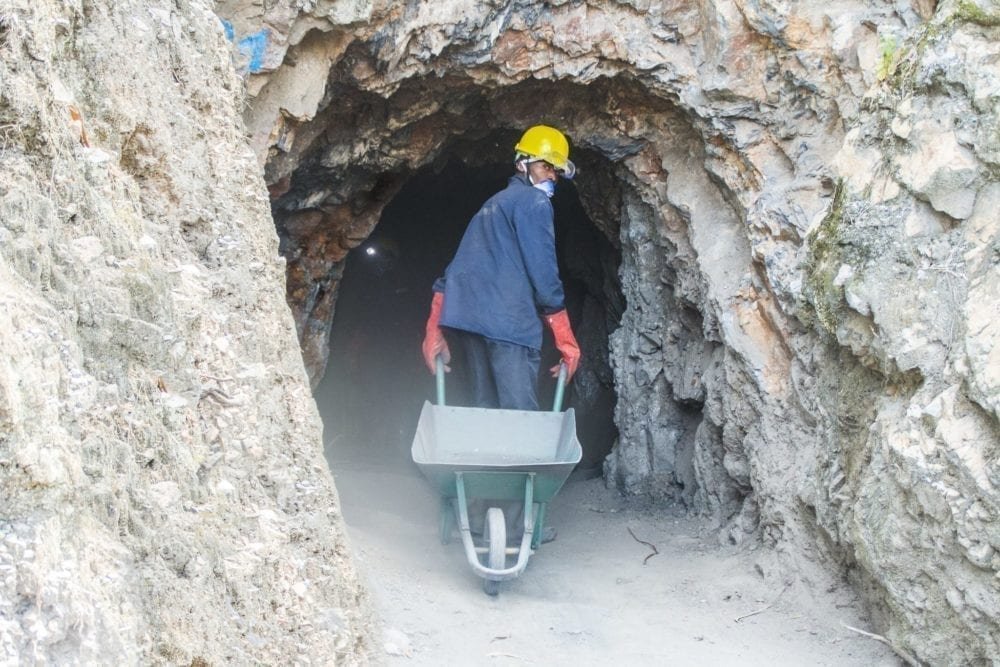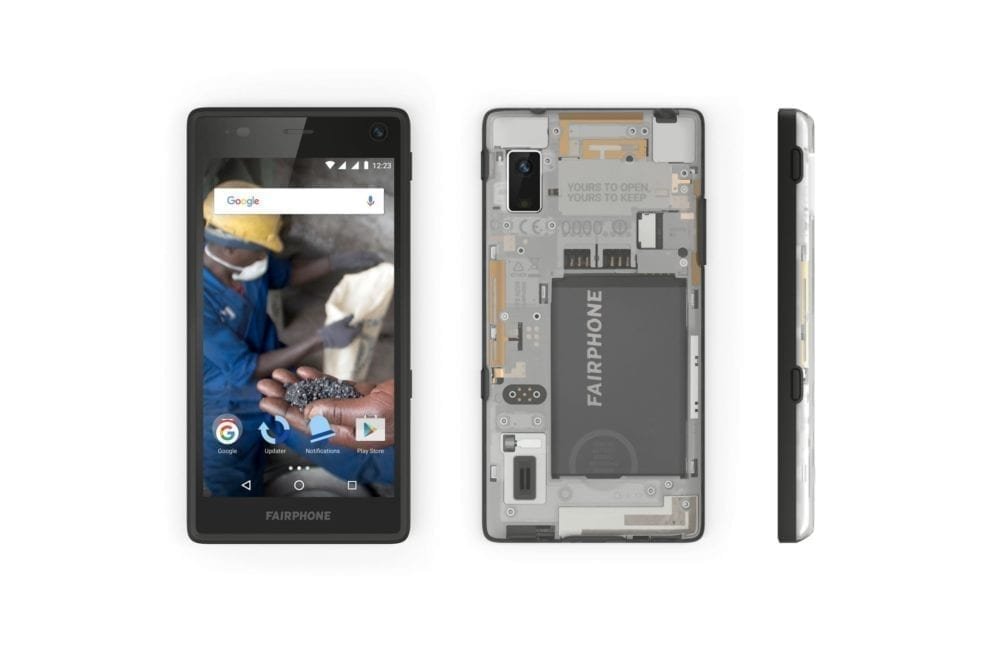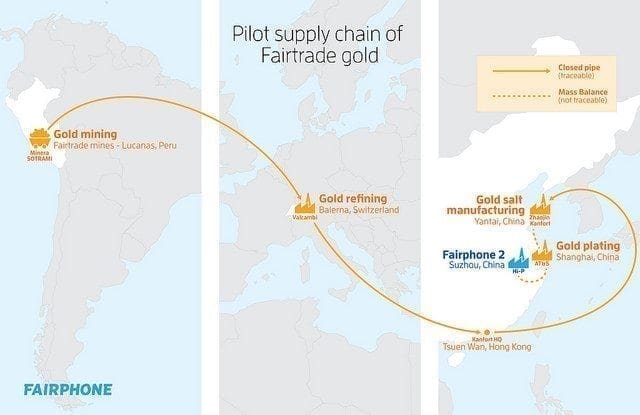Fairtrade gold
For its latest smartphone, Fairphone invested in a completely new design approach, developing a modular phone from the ground up. This strategy not only enhances the device’s longevity and repairability, it also improves Fairphone’s ability to select and build relationships with likeminded (sub)suppliers.
These supplier relationships have been essential for piloting with the gold supply chain in the electronics industry. The successful conclusion of this project is a result of the flexibility and enthusiasm of a variety of parties, including Max Havelaar in the Netherlands, Zhaojin Kanfort, a Chinese gold salt manufacturer and AT&S, Fairphone’s printed circuit board supplier.
MINERA SOTRAMI
Fairphone sources the Fairtrade-certified gold from MINERA SOTRAMI S.A. (Sociedad de Trabajadores Mineros S.A.), Peru, with assistance from Max Havelaar. MINERA SOTRAMI is a small-scale mining enterprise with 164 shareholders and employs 260 mineworkers as well as five engineers who manage the mine and processing plant.
The gold mined here meets the Fairtrade Standard for Gold and Precious Metals, meaning that rigorous social, economic and environmental regulations are followed including child protection policies.
In addition, the miners are guaranteed a Fairtrade Minimum Price and Premium that assists in sustainable development for the community. This way, the mine supports 500 families.

Processing
From Peru, the gold travels to Valcambi, a major refinery in Switzerland which is licensed to process Fairtrade gold. After refining, Fairphone purchases a small amount of the Fairtrade-certified gold which is then shipped to Kanfort’s office in Hong Kong, and transported to Zhaojin Kanfort’s gold salt processing facility in China to create gold salt used by AT&S to electroplate the PCBs.
On 25 January 2016, the gold arrived safely in Hong Kong before heading to Yantai. There it will be added to the gold salt production process where it is mixed with gold from other sources (referred to as a mass-balance system).
Although this means the gold is not traceable to the specific batch of gold salt for AT&S, it is the first time Fairtrade-certified gold can be physically traced to China to produce gold salt in a way that directly supports MINERA SOTRAMI in Peru.
A first step…
Fairphone is understandably proud of this achievement, and is very pleased to be able to connect Fairtrade-certified gold to the sales of its phones.
However, the organisation cautions that this supply chain is a pilot project and should be seen as a first step – challenges remain to scale up and optimise the supply chain over the long run for the rest of the industry.
A new path for consumer electronics
By purchasing Fairtrade-certified gold, Fairphone hopes to demonstrate to the consumer electronics industry that by forming the right partnerships, it is possible to open up and map supply chains and influence more responsible sourcing practices.
In addition, Fairphone believes that increased awareness for projects like these will stimulate consumer demand for electronics that contain more responsible minerals – offering yet another reason for the consumer electronics sector to establish scalable and sustainable mineral supply chains.
Click here to pre-order the Fairphone 2 through the organisation’s online shop.
 Play Video about This Rock Might Just Save The World
Play Video about This Rock Might Just Save The World Play Video about Play 2 hours of rock
Play Video about Play 2 hours of rock Play Video about Play 2 hours of brook
Play Video about Play 2 hours of brook Play Video about Play 2 hours of sheep
Play Video about Play 2 hours of sheep













































